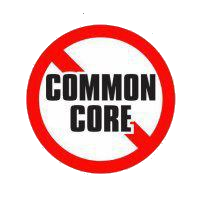Parents, teachers, and activists around New Hampshire have been warning about the new computer adaptive Common Core standardized assessments. The NH DOE signed on to Smarter Balanced before it was ever validated. (It still has NOT been validated as required by law)
The NH DOE and BOE have turned a deaf ear to concerns that have been raised by many people. Only now has Commissioner Barry “offered” schools the option of using the SAT (which will also be a Common Core assessment) as a replacement IF all schools AGREE to use it.
Where is the local control? What about Wakefield whose School Board was wise enough to reject the Common Core Standards and instead, use the better quality (OLD) Mass. Standards? Why should they subject their students to ridiculous and confusing math questions that do nothing to show a child’s true math proficiency?
The NH Dept. of Ed and Board of Ed. simply follow the Federal Department of Education that continues to use our kids like guinea pigs in this continued failed experiment.
WE URGE PARENTS TO REFUSE THE STANDARDIZED TESTS. At the MINIMUM all parents should observe the classroom when these tests are given to their children. Make notes and send us an update.
Thanks to the Union Leader for their coverage and more importantly, to teachers like Oden who are courageous enough to speak out.
Nashua assessment tests miss the mark
By BARBARA TAORMINA
Union Leader Correspondent
NASHUA — Some results from the latest round of i-Ready assessment tests may have been flawed because the test company, Massachusetts-based Curriculum Associates, failed to tell the school district that tables used to interpret scores had been changed.
Students in first through ninth-grades take i-Ready math and reading assessment tests three times each year. Teachers use the results of the 45-minute tests to understand each child’s academic strengths and needs, and to tailor instruction to each individual child. “We were not updated on one of the test tools, the placement tables,” said Superintendent Mark Conrad, who added that Curriculum Associates recalibrated those tables without telling the school district.
Conrad said the result was that children from two or three elementary schools were placed in the wrong “skills groups.” The error has since been corrected, and Conrad said the district may receive a financial credit from the company.
Although Conrad said the school district has been working with Curriculum Associates for about three years, and the experience has been “exceptional,” the glitch put assessment tests back in the spotlight at the Board of Education meeting this week. BOE member Dotty Oden, a former first-grade teacher at Amherst Elementary School, said she has had ongoing concerns about i-Ready tests and the upcoming Smarter Balanced tests that begin this spring.
Like Smarter Balanced, i-Ready is an online, adaptive test program based on the Common Core standards.
“I have been hearing from teachers that the data from the tests is not indicative of the children they are seeing in the classroom,” said Oden who added that some teachers saw their entire class score below grade level on i-Ready tests.
While Common Core advocates say the new standards and tests are more rigorous and better prepare students for college and careers, Oden and others worry that the tests are developmentally inappropriate, particularly for math.
“Kids at early stages of development are more concrete thinkers,” she said.
The new standards and tests require critical and abstract thinking which Oden and others say is out of sync with how children naturally develop.
And because i-Ready tests are used to inform teachers on how to teach, and are not part of grades, Oden worries that students in higher grades don’t take them seriously.
Still, Conrad said i-Ready gives teachers information they can use to decide the next best instructional step for students.
“In many cases, teachers say they do get valuable information from i-Ready,” he said adding that the test results are part of a mix of other measures such as classroom work and regular test scores.
But for Oden, those more traditional measures and a teacher’s observations and experience offer a broader and more reliable assessment of students.
btaormina@newstote.com


